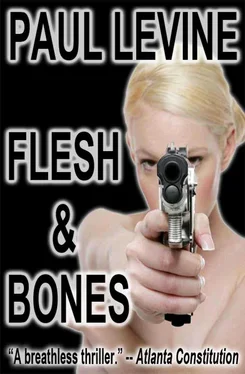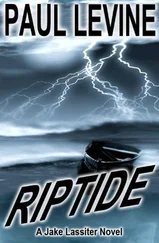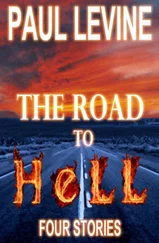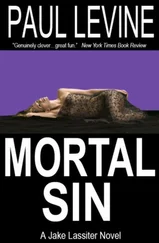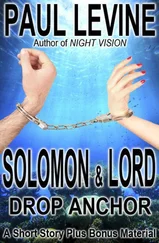Paul Levine - Flesh and bones
Здесь есть возможность читать онлайн «Paul Levine - Flesh and bones» весь текст электронной книги совершенно бесплатно (целиком полную версию без сокращений). В некоторых случаях можно слушать аудио, скачать через торрент в формате fb2 и присутствует краткое содержание. Жанр: Криминальный детектив, на английском языке. Описание произведения, (предисловие) а так же отзывы посетителей доступны на портале библиотеки ЛибКат.
- Название:Flesh and bones
- Автор:
- Жанр:
- Год:неизвестен
- ISBN:нет данных
- Рейтинг книги:3 / 5. Голосов: 1
-
Избранное:Добавить в избранное
- Отзывы:
-
Ваша оценка:
- 60
- 1
- 2
- 3
- 4
- 5
Flesh and bones: краткое содержание, описание и аннотация
Предлагаем к чтению аннотацию, описание, краткое содержание или предисловие (зависит от того, что написал сам автор книги «Flesh and bones»). Если вы не нашли необходимую информацию о книге — напишите в комментариях, мы постараемся отыскать её.
Flesh and bones — читать онлайн бесплатно полную книгу (весь текст) целиком
Ниже представлен текст книги, разбитый по страницам. Система сохранения места последней прочитанной страницы, позволяет с удобством читать онлайн бесплатно книгу «Flesh and bones», без необходимости каждый раз заново искать на чём Вы остановились. Поставьте закладку, и сможете в любой момент перейти на страницу, на которой закончили чтение.
Интервал:
Закладка:
"Rusty said you were hardheaded…"
"He doesn't know the half of it."
"He said I couldn't reason with you, deal with you. Apparently he's right. But even a mule, a jackass, can be taught. And today's lesson is that a bigmouth lawyer who points his finger at me is likely to get it cut off. You think you're a tough guy, but you know what? You bleed just like anybody else."
He nodded, and the man dragged the knife across the underside of my chin. A line of blood formed, then began to spill in drops. The man backed off and cleaned the knife on my jacket. His pal stepped forward, and while I had one hand cupped under my chin, he caught me in the gut with a short right hook. I crumpled to the tile floor, coughing and bleeding.
I had two Band-Aids under my chin when Abe Socolow greeted me in the morning. "What happened to you?"
"Cut myself shaving."
"Nervous, huh?" he said, and made his way to the prosecution table.
I had told Chrissy what happened and had grounded both of us for the duration of the trial. Now, we were in the courtroom of the Honorable Myron Stanger, and I was trying to focus on my witness.
The clerk called out her name, and Dr. Milagros Santiago marched to the witness stand, nodded to the jurors, and sat down. She was dressed in a navy skirt and matching jacket, her eyeglasses perched on top her head. She was one of those women who proudly carry twenty extra pounds and to hell what anybody else thinks. Millie gave her credentials and background; then we got down to business.
"The old view of autobiographical memory stems from Freud," Dr. Santiago said. "He described repression as a defense mechanism used to suppress the psychic pain of anxiety, guilt, or shame. We came to believe that every experience of a person's life was stored somewhere in the brain, waiting to be recalled by therapy or drugs, hypnosis or meditation. But now we know it's not that simple. Our memories are constantly being refashioned, and when we dredge them up, it's from a murky sea. There are true memories with false details, and false memories with true details."
She told the jury how historical truth, what actually happened, differs from narrative truth, what we remember.
"We don't store memories like bytes of data on computer disks, ready to be called up with total accuracy at the touch of a keystroke," she said, looking directly at the jury. "Memories are malleable and tend to change and drift with time. When recalled, they're a blend of fact and fiction."
I took Dr. Santiago through her research and that of others. She quoted the work of Dr. Elizabeth Loftus, using her analogy of the memory as a giant blackboard with an endless supply of chalk and erasers. Memory is dynamic, ever changing, susceptible to suggestion, and no one knows where truth ends and the imagination begins. She talked about the personal myths each of us creates about the past, about the dreams we mistake for reality. She told about pseudomemories of past lives and tales of abduction by aliens and satanic abuse.
"The people with these memories aren't lying," she said. "They could pass lie detector tests, and indeed it might be difficult to disprove them. But we know that such memories can be seriously flawed. We confuse dreams with recalled events. As for cases of abuse, memory is weakest at both ends of the spectrum of stress and boredom. Both mundane and violent events actually decrease the accuracy of memory. And, of course, memories can be implanted, either purposely or not, by others."
As she spoke, I watched the jurors. Rapt attention, some nodding with recognition of instinctual truths. The best expert testimony makes sense to the layman. It fits with reality as we know it. DNA testing, combining genetics and statistics, is a challenge to your average Dade County juror, whose knowledge of English, much less chemistry, is rudimentary. Given a choice between Ph. D. s dishing out scientific mumbo-jumbo or the visual presentation of a glove that doesn't fit, I'll take the glove every time.
After twenty minutes of listening to Millie Santiago, I wasn't sure I believed my own memories. Had I really seen my father cry that day on the porch when my mother ran out to meet her lover? Or had those been my tears?
"Are you saying there is no such thing as recovering repressed memories?" I asked.
"No," Millie said.
On direct examination, just like Socolow, I set up straw men, then knock them down.
"Memory suppression is hardly unknown," she continued. "In one study, researchers found that thirty-eight percent of adult women who had been treated for sexual abuse as children had no memories of the incidents. The difficulty is to recover the memories without contamination by postevent occurrences or suggestions by therapists, whether innocent or malevolent."
Malevolent. Nice word. I wanted to make it Lawrence Schein's middle name.
"The literature is replete with false accusations," she continued, "such as the former altar boy who accused a Roman Catholic cardinal of sex abuse, only to recant. We now know that many such accusations are therapy driven."
It was time to move from the general to the specific.
"Have you had an opportunity to examine the defendant, Chrissy Bernhardt?"
"Yes, I examined her."
"Have you reviewed any records in connection with the examination?"
"I read Dr. Schein's entire file, including notes detailing the therapy sessions, his tests and diagnoses, and I listened to the tapes. Additionally, I reviewed as many of the patient's childhood medical records and current records as I could locate."
"Based on your examination and the records you reviewed, are you able to state to a reasonable degree of medical certainty whether Chrissy Bernhardt was sexually abused by her father?"
"No."
The jurors responded with puzzled looks. I had disappointed them. They expected a revelation, and I had none. Yet.
"What could you determine?"
"Christina suffered severe trauma when she was approximately eleven years old, and she repressed the memories of the incidents," Dr. Santiago said. "There are certain indicia of sexual abuse which coincide with the time frame. She had several urinary tract infections at ages eleven through thirteen and also suffered eating disorders, including bulimia. Her schoolwork suffered and she became rebellious at about the same time. These can demonstrate a history of sexual abuse, though they are not conclusive."
"What about the fact that, while under hypnosis, Chrissy revealed alleged instances of sexual abuse by her father?"
"Those statements are as reliable as a witness to a crime who picks the alleged criminal out of a lineup while being coaxed by a policeman. Christina's revelations are tainted by Dr. Schein's overly suggestive questioning and are completely unreliable. In fact, at the present time, they have been recanted, at least to the extent that Christina now states she no longer knows what happened to her."
"Then how can we determine what really happened?"
"There's no certain way, but with appropriate, neutral questioning under hypnosis, without the use of drugs, there's a possibility."
I turned toward the judge. "Your Honor, at this time, we call Christina Bernhardt to undergo questioning under hypnosis by Dr. Santiago."
"What!" Abe Socolow leaped to his feet. He leaned toward the bench, resembling the bowsprit of a sailboat. "The state objects. You can't put two witnesses up there together and have a tea party."
"Is that a sexist remark?" I asked, aiming for the female jurors.
"There's no precedent for this," Socolow complained.
"It's an evidentiary demonstration, no different than any other," I responded.
Socolow's Adam's apple bobbed above his shirt collar. "It's cheap theatrics!"
The judge motioned us up to the bench. "Let's have a brief sidebar." When we got there, he looked at me. "What are you pulling here, Jake?"
Читать дальшеИнтервал:
Закладка:
Похожие книги на «Flesh and bones»
Представляем Вашему вниманию похожие книги на «Flesh and bones» списком для выбора. Мы отобрали схожую по названию и смыслу литературу в надежде предоставить читателям больше вариантов отыскать новые, интересные, ещё непрочитанные произведения.
Обсуждение, отзывы о книге «Flesh and bones» и просто собственные мнения читателей. Оставьте ваши комментарии, напишите, что Вы думаете о произведении, его смысле или главных героях. Укажите что конкретно понравилось, а что нет, и почему Вы так считаете.
